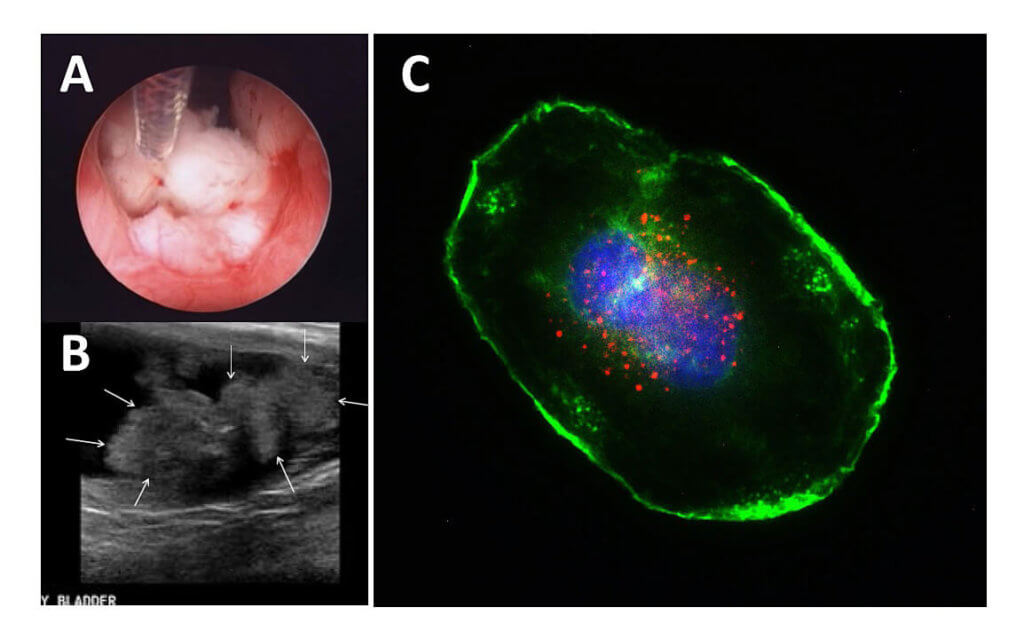Two Purdue Veterinary Medicine faculty members played an instrumental role in research involving the Purdue University Center for Cancer Research focused on developing a promising new method of treating bladder cancer using a modified version of the anthrax toxin. Modifying the anthrax toxin makes it unlikely to cause harm to the patients. The new approach combines the toxin with a growth factor to kill bladder cancer cells.

The lead investigator at Purdue is Dr. R. Claudio Aguilar, associate professor and assistant head of biological sciences in Purdue’s College of Science. Dr. Aguilar’s research group worked with Purdue teams led by Dr. Timothy Ratliff, distinguished professor of comparative pathobiology and the Robert Wallace Miller Director of the Purdue Center for Cancer Research, and Dr. Deborah Knapp, the Dolores L. McCall Professor of Comparative Oncology and director of the Purdue Comparative Oncology Program, to conduct clinical testing. They tested the new agent in dogs with bladder cancer, specifically dogs that had failed to respond to other therapies or who could not receive other therapies. Following the treatment with the toxin, the tumors decreased in size and the dogs did not experience any bothersome side effects.
“We have effectively come up with a promising method to kill the cancer cells without harming the normal cells in the bladder,” said Dr. Aguilar. “It is basically like creating a special solution that targets cancer cells while leaving healthy cells alone.” The research was published in the October 4 issue of the International Journal of Cancer.
According to the U.S. Centers for Disease Control and Prevention, bladder cancer strikes more than 74,000 people in the U.S. every year and about 17,000 die from the disease. Current treatments are expensive and invasive, often requiring patients to sit for hours at a time with a bladder full of an agent designed to kill cancer cells and tumors. In contrast, Dr. Aguilar said the Purdue system works within minutes to target the cancer cells in the bladder. He explained that the bladder has its own protective layer, which saves the good cells from the anthrax mixture, but offers no protection for the cancer cells and tumors.
Dr. Aguilar, who works as part of a team focused on cell identity and signaling at the Purdue University Center for Cancer Research says the new treatment “…is fast and effective, both of which are critical for people dealing with this devastating disease.” The investigators are also encouraged by the initial studies in a small number of dogs with bladder cancer in which the treatment resulted in some reduction in the tumor size, because bladder cancer in dogs often develops resistance to other treatments and can be as difficult to treat as human bladder cancer.
The Purdue researchers think a similar treatment may help people and animals with other cancers, including those affecting the lungs or skin. The Purdue researchers also collaborated with partners in the Indiana University School of Medicine, the Massachusetts Institute of Technology and Harvard University, and worked with the Purdue Research Foundation Office of Technology Commercialization to patent the new treatments.
